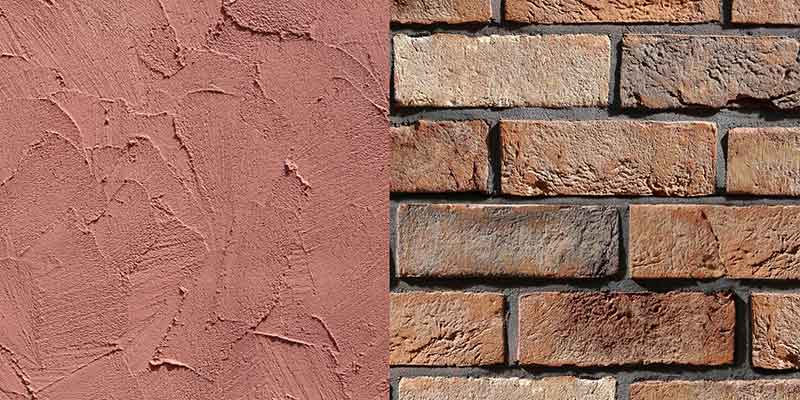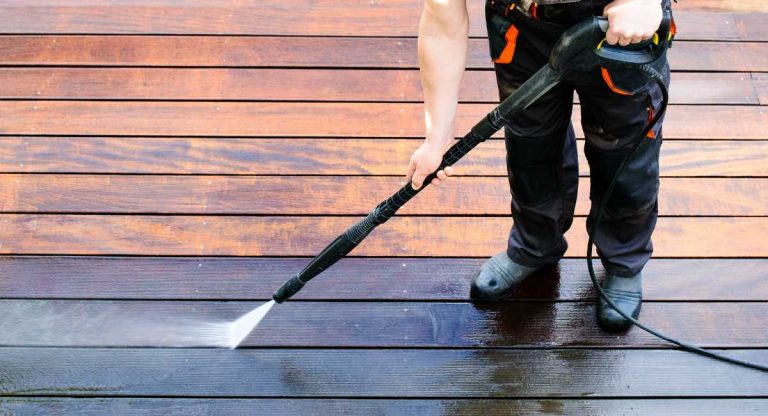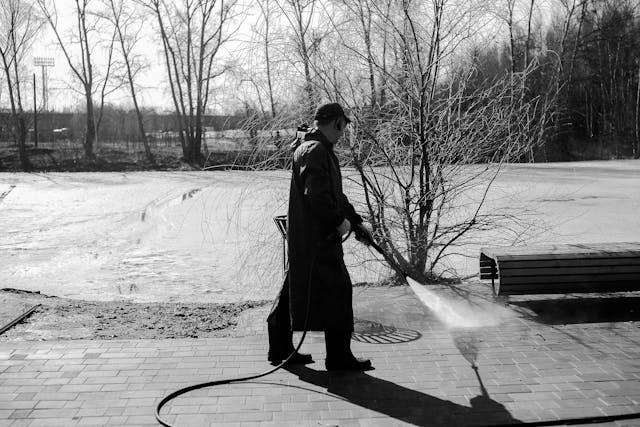
Not all exterior surfaces are created equal — and when it comes to brick and stucco, that couldn’t be more true. If you’re planning to hire a power washing service, it’s critical to understand that different materials require different techniques. Choosing the wrong service (or one that uses a one-size-fits-all approach) could lead to cracked stucco, damaged mortar, or even water intrusion behind your walls. 😬
So, do you really need a different power washing service for brick versus stucco? The answer is often yes — and here’s why. 👇
🧱 The Nature of Brick: Tough but Porous
Brick is a durable and long-lasting material, often used for homes, chimneys, and patios. While it looks tough on the outside, brick is highly porous, meaning it absorbs moisture easily. It’s also held together by mortar, which can erode under high pressure.
What Brick Needs:
- Medium-pressure washing (not high pressure)
- Careful attention to mortar joints
- Avoidance of harsh chemical cleaners that could cause discoloration
- A technician experienced with historic or older brick if your home is vintage
Using high pressure on brick can blast away mortar and open the door to future water damage. 🧱💧
🏠 The Nature of Stucco: Fragile but Beautiful
Stucco gives homes a clean, Mediterranean-inspired look — but it’s far more delicate than brick. Stucco can crack, chip, or crumble if subjected to strong water pressure, especially in older homes or areas that have already been patched.
What Stucco Needs:
- Soft washing, a technique that uses low pressure and cleaning agents
- Specialized nozzles or wide-angle sprayers
- Gentle, even strokes to avoid streaking or surface damage
- Rinse cycles that prevent water from soaking behind the walls
Improper power washing on stucco can ruin the surface texture, leaving permanent scars or even causing leaks. 😨
Browse Amazon Here For Soft Washing Equipment And Accessories
💡 Why One Service Might Not Fit Both Surfaces
Some power washing companies specialize in high-powered blasting — great for concrete or brick patios, not so great for stucco siding. Others focus on soft washing for delicate surfaces but may lack the equipment or expertise for deeper cleaning on rougher materials like brick or stone.
If your home includes both brick and stucco (which is quite common), you’ll want a company that understands how to treat each differently — possibly even switching methods mid-job.
✅ Questions to Ask Before You Hire
Whether you’re focused on one material or both, ask your contractor the following:
- Do you use different methods for brick and stucco?
If they say no, that’s a red flag. 🟥 - What type of pressure do you use for each surface?
Look for soft washing for stucco and controlled pressure for brick. - Are your technicians trained to clean different materials?
Ask if they’ve worked with mixed-material homes or commercial buildings. - Can I see examples or reviews from similar jobs?
A quality provider should have pictures or testimonials. - What cleaning solutions do you use, and are they safe for my plants?
This is especially important for stucco, where runoff may affect surrounding areas.
🧼 The Benefits of Choosing the Right Method
When the proper technique is used for each material, you’ll enjoy:
- Extended longevity of your surfaces
- No damage to mortar, stucco, or sealants
- A cleaner, more consistent appearance
- Fewer future repairs
It’s not just about aesthetics — it’s about preserving the integrity of your home. 💪🏡
👷♂️ How Professionals Customize Their Approach
A reputable power washing service will often assess your property before giving a quote. For mixed-material homes or structures, they’ll:
- Perform a visual inspection of cracks or loose surfaces
- Test the pressure in an inconspicuous spot
- Adjust detergents based on what each surface can handle
- Use multiple nozzles, tips, or machines if needed
- Divide the project into zones to ensure precision
They may even recommend delaying part of the job if stucco has damage that should be repaired first.
🌦️ Don’t Forget Weather and Timing
Both brick and stucco absorb water — and if washed too close to a rainstorm, moisture may linger and promote mold or mildew growth. Always aim to power wash:
- On a dry, mild-weather day
- When the surface has time to dry properly
- With enough lead time before painting or sealing (if applicable)
Stucco, in particular, can develop efflorescence (white streaks from salt deposits) if washed improperly or allowed to dry too slowly.
🚫 What Can Go Wrong With the Wrong Service?
Choosing a contractor who doesn’t distinguish between stucco and brick can lead to:
- Hairline cracks or chips in your stucco
- Washed-out or damaged mortar joints
- Uneven color or streaking
- Water intrusion into your home’s envelope
- Costly repairs or premature maintenance
It’s better to spend a little more on a specialized service than to pay for damage control later. 💸🛠️
📝 Final Thoughts: Choose Experience Over Price
While it might be tempting to choose the lowest quote, don’t assume every power washer knows how to handle stucco and brick equally. When hiring, look for experience, training, and technique — not just a pressure washer in a truck.
Whether you’re maintaining a historic brick home or protecting your delicate stucco facade, the right power washing company can make your home sparkle without causing harm. ✨
Ask questions, do your homework, and never settle for a one-size-fits-all solution when it comes to caring for your home’s exterior. 🧼🏡
Browse Amazon Here For Soft Washing Equipment And Accessories






